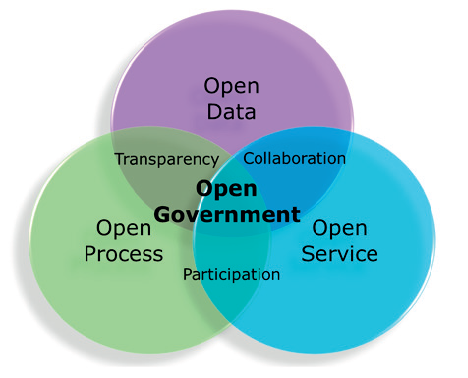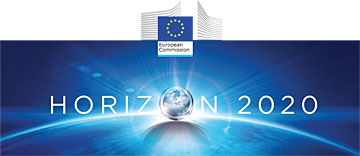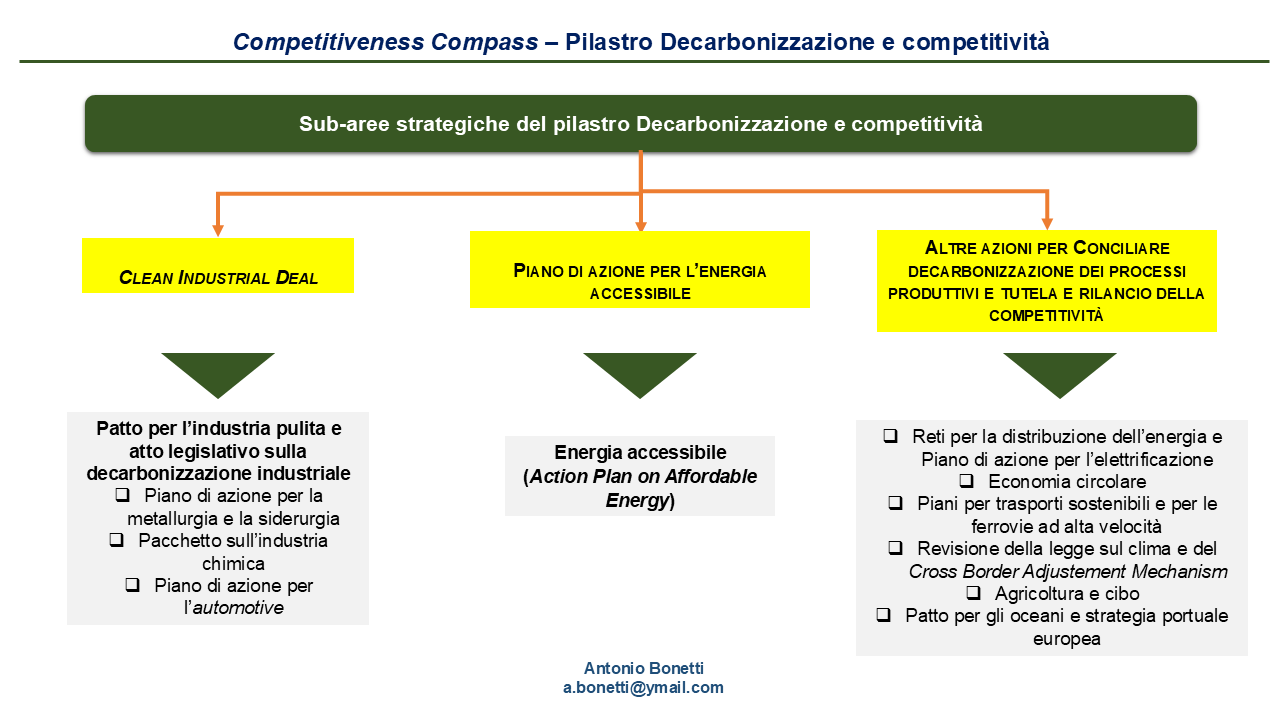‘Europe needs a new policy framework for its
public sector, built on a pro-active and engaging narrative
of institutional innovation
and an ethos of stewardship in the use of public funds’
European Commission, Powering European
public sector innovation, 2013, 5
Open Government and ICT-enabled Public Sector innovation
The modernization of the Public Sector by using the ICT is a key element within both the flagship initiatives “Innovation Union” and “A digital agenda for Europe” of the “Europe 2020” strategy.
The policy framework for ICT-enabled Public Sector innovation is chiefly established in the “Digital Agenda for Europe” (COM (2010) 245 final, 19.05.2010) and the “e-government action plan 2011-2015.” [1]
In the last two years, the European Commission (EC) has further improved this policy framework publishing the following very interesting official documents:
• the Working Paper “A vision for public services“, produced by the Public Services Unit in DG CONNECT (13 June 20103),
• the Report of the Expert Group on Public Sector Innovation “Powering European Public Sector Innovation: towards A New Architecture” (2013),
• the Report “The Digital Agenda Toolbox” (2014). [2]
The guiding principle of ICT-enabled Public Sector innovation, summarized in the following chart, is that “the future of government is less and less in the hands of governments alone. Technology has empowered ordinary citizens by offering them a way to make their voices heard and challenge government leaders about their ability and willingness to address public concerns and requests [….] The kind of public sector organisation that is at the heart of this transformation is open government, based on the principles of collaboration, transparency and participation and functioning within an open governance framework” (see. EC, A vision for public services, p. 2)
ICT-enabled Public Sector innovation in a nutshell
Source: adapted from EC – DG CONNECT A vision for public services (2013, 3)
ICT-enabled Public Sector innovation within Horizon 2020
Within this policy framework, Horizon 2020 – the Framework Programme for research and innovation in Europe – is certainly the most important instrument which supports ICT-enabled Public Sector innovation.
Horizon 2020 is a very complex Framework Programme. It is structured around three main pillars (funding areas):
• Excellent Science,
• Industrial Leadership (this section focuses on three actions: (i) Leadership in Enabling and Industrial Technologies, (ii) access to risk finance, (iii) innovation in SMEs),
• Societal Challenges.
In addition, there are five cross-cutting funding areas. Among these, it is worth mentioning “Science With and For Society”, aimed at making research and innovation more accessible to the ordinary people and, thus, fostering their participation in designing research and innovation policies [3].
The pillar Societal Challenges (SC) covers, inter alia, the research area “Europe in a changing world – Inclusive, innovative and reflective societies” (SC6).
Within this research area, ICT-enabled Public Sector innovation is fostered mostly by the strand of calls for proposals INSO (New Forms of Innovation).
It seems to me that the most interesting opportunities are provided by the following calls:
1. INSO-1-2015: ICT-enabled open government, which is mainly targeted at Public Administrations.
This action is built upon three key challenges:
• “availability of open data and open services, in an open government setting support the collaborative forms of service design and delivery and they increase transparency;
• Personalised public services can arise from enabling and empowering citizens and businesses to directly participate in the design, creation, selection and delivery of some of the public services;
• Transparency is an important element of the open government approach. Open data and information lead to more transparency.” (see Annex to the European Commission Decision C (2014)4995 of 22 July 2014, pages 69-70) [4].
These challenges are substantially confirmed by the consolidated version of the “Europe in Changing World” Work Programme following the European Commission Decision C (2014)9294 of 10 December 2014.
2. INSO-9-2015: Innovative mobile e-government applications by SMEs.
As stated in the Work Programme 2014-2015 – revised in December 2014 – for the SC6 “Europe in a changing world – Inclusive, innovative and reflective societies”, “The scope of this action is to provide support to innovative SMEs, including start-ups, for the design and creation of innovative applications, in order to foster the delivery of mobile public services.
The aim is to help the interaction of citizens and businesses with public administrations. This may be done through the combination of public and private sector services, through mobile technologies.” (see Annex to the European Commission Decision C (2014)9294 of 10 December 2014, p. 81).
Unlike the previous strand, this strand of calls is targeted at SMEs, for the following reason: “Coupling open public data and services with information and services offered by the private sector can lead
to innovative, user friendly and personalised services that can be accessed easily. Because of their size, knowledge and agility, SMEs are key actors for the provision of those innovative services.” (see Annex to the European Commission Decision C (2014)9294 of 10 December 2014, p. 81)
Furthermore, it is implemented trough the specific type of action SME Instrument.
Another call for proposals directed at improving effectiveness and efficiency by tapping into ICT and other emerging technologies is EURO-6-2015: Meeting new societal needs by using emerging technologies in the public sector, which is founded on the basic principle that “It is essential to promote innovation in order to foster efficient, open citizen-centric public services. This innovation also addresses the challenge of social change and user needs.” (see Annex to the European Commission Decision C (2014)9294 of 10 December 2014, p. 17).
*********
[1] The “Digital Agenda for Europe” is structured around 7 domains:
• digital single market;
• interoperability and standards;
• trust and security;
• fast and ultra-fast Internet access;
• research and innovation;
• digital literacy, skills and inclusion;
• ICT-enabled benefits for EU society.
[2] Other relevant and insightful references, published by the EC, to be taken into consideration are:
• Trends and Challenges in Public Sector Innovation in Europe (2012);
• European Public Sector Innovation Scoreboard 2013: A pilot exercise (2013):
• The Open Innovation 2.0 Yearbook 2014 (2014).
[3] Within the Work Programme 2014-2015 of “Science With and For Society”, revised in July 2014, some interesting calls for proposals for “Integrating Society Into Science and Innovation – ISSI” are due to be published in April 2015. For more information, please click on the link below:
http://ec.europa.eu/research/participants/portal/desktop/en/opportunities/h2020/calls/h2020-issi-2015-1.html
[4] EC Decision C (2014)4995 of 22 July 2014 ‘Horizon 2020 Europe in a changing world – Inclusive, innovative and reflective society. Revised’
The consolidated version of the “Europe in Changing World” Work Programme following the European Commission Decision C (2014)9294 of 10 December 2014 is available on the Horizon 2020 website.











